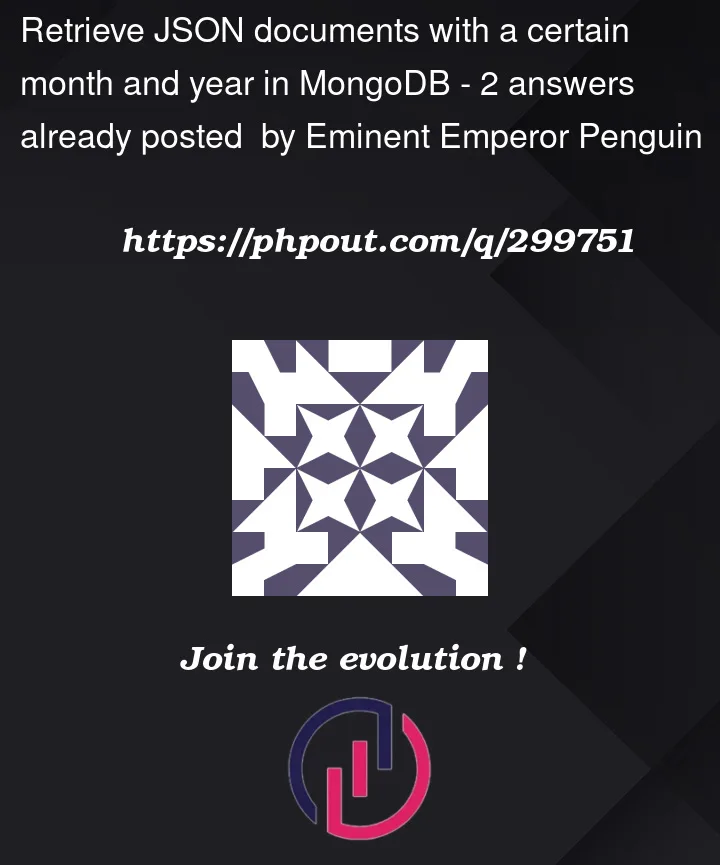I am trying to retrieve some documents from a collection in my MongoDB instance.
Here you are the entire collection:
[
{
_id: ObjectId("65708c6237b62067296a398f"),
date: ISODate("2020-09-15T04:07:05.000Z"),
description: 'playstation',
category: 'miscellaneous',
cost: 499,
users: [ { username: 'Giacomo', amount: 499 } ]
},
{
_id: ObjectId("6570950cecb7eb1b4b868409"),
date: ISODate("2020-09-15T04:07:05.000Z"),
description: 'tennis court',
category: 'sport',
cost: 100,
users: [
{ username: 'prova', amount: 50 },
{ username: 'Giacomo', amount: 50 }
]
},
{
_id: ObjectId("6570953aecb7eb1b4b86840a"),
date: ISODate("2023-02-09T03:12:15.012Z"),
description: 'netflix subscription',
category: 'entertainment',
cost: 100,
users: [ { username: 'prova', amount: 10 } ]
}
]
At the moment, I can retrieve documents with a certain year as a part of the value of date with the following query:
db
.collection("expenses")
.find({
"users.username": "desired_username",
$expr: { $eq: [{ $year: "$date" }, 2020] },
})
As the next step, I want to retrieve documents that have not only a certain year but a certain month too (e.g. september, 2020 should return the first two documents). I don’t know how to use two different expressions in the query.
Can anyone help me to solve the problem?
Thank you in advance for your patience.




2
Answers
in simplest terms you could have something like
playground
or if you want more fancy you could go with something like this with date to string formatting (need mongo 7)
this will not work in mongoplayground since it runs on a lower mongo version
or something that might run on older versions like
playground
okay one last just for fun but i guess this is too much making the query hard to understand at times ( this is exactly the longer version of what is shown in 2nd approach)
playground
A simple approach which you could modify is to leverage the
$gteand$ltecomparison operators to specify a start and end date from which to narrow your query. Below we have greater than or equal to 1st Sept 2020 but less than or equal to 30th Sep 2020: